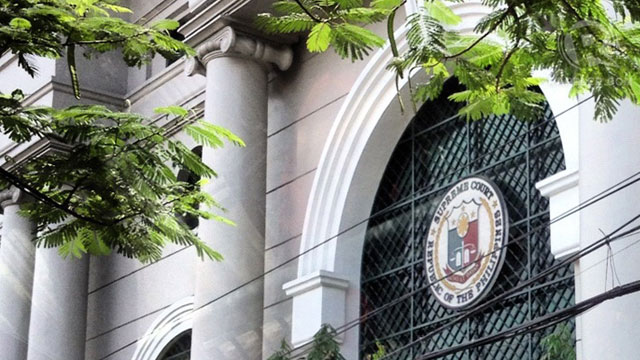SUMMARY
This is AI generated summarization, which may have errors. For context, always refer to the full article.

MANILA, Philippines – The Supreme Court adopted a rule on Tuesday, September 4, which is expected to cut trial time by 50%.
Deputy court administrator Raul Villanueva said the SC unanimously approved the judicial affidavit rule, which will do away with the lengthy direct testimony of witnesses.
The rule will take effect on January 1, 2013.
The use of judicial affidavits was adopted upon the recommendation of SC Associate Justice Antonio Carpio, who chairs the committee on revision of rules of court, and Associate Justice Roberto Abad, head of the subcommittee on revision on rules of procedure.
Witnesses will now be asked to submit judicial affidavits, which are sworn statements in a question-and-answer form. The affidavit will contain the following: name of witness, name of the lawyer who took the testimony, a statement that the witness is answered questions under oath and that he may be held criminally liable for false testimony or perjury.
Villanueva said the presentation of witnesses consumes 50% of trial time. By introducing the judicial affidavit rule, direct testimony need not be conducted, and the trial may proceed with the cross-examination of witnesses instead.
The cutting down of trial time is a needed reform in the judiciary, where case resolution takes an average period of 6 years.
The rule will apply to all actions, proceedings and incidents requiring the presentation of evidence in appellate and lower courts, as well as in quasi-judicial bodies.
Fine
It will also be applied in civil and special proceedings cases and in criminal cases under these circumstances: when the maximum imposable penalty does not exceed 6 years; and when the accused agrees to use judicial affidavits regardless of the penalty involved.
If a party does not submit a judicial affidavit, it may be considered a waiver on his part. Delayed submission is allowed if the delay is justifiable, but there is a fine of P1,000-P5,000.
The use of judicial affidavits was pilot-tested in Quezon City regional trial courts in April this year. Villanueva said they will assess how effective it has been when they meet on Wednesday, September 5. – Rappler.com
More in #SCWatch:
- SC must return to ‘dignified days of silence’ – Sereno
- ‘Woman CJ not necessarily pro-woman’
- Next 3 presidents will have Sereno as CJ
- Sereno is 1st female chief justice
- 22 official candidates for Chief Justice
- JBC to interview CJ candidates starting July 24
- 25 accept nominations for chief justice
- Questions for chief justice candidates
- JBC should review process of choosing CJ
- Besides JBC, Palace has judicial search committee
- CONVERSATIONS: How should the JBC choose the next chief justice? #SCWatch
Add a comment
How does this make you feel?
There are no comments yet. Add your comment to start the conversation.